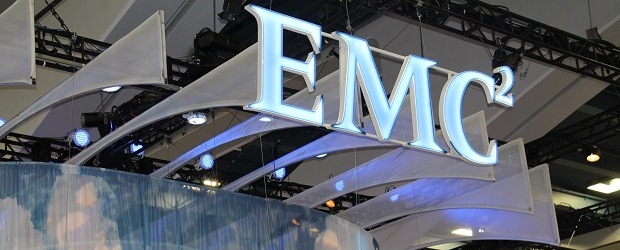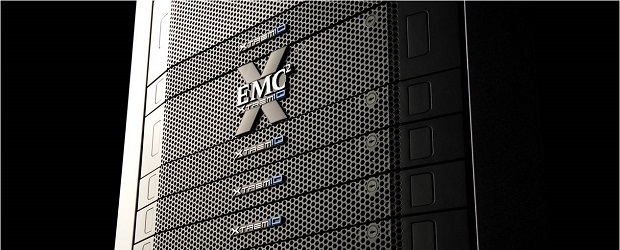IT storage hardware company EMC is leaping into the hybrid cloud market with a new product line aimed at large enterprise organizations.
Built with Microsoft and OpenStack technology, the company’s Enterprise Hybrid Cloud (EHC) is designed as an easy-to-implement cloud software that will allow large companies to divvy up their operations on-premise and on public clouds such as Microsoft Azure or OpenStack by Rackspace.
According to EMC’s briefing material the new self-service hybrid cloud solution:
- Brings together private and public clouds to enable IT-as-a-Service
- EHC comes with engineered hardware, software and services solution accelerates time-to-value by delivering an Enterprise Hybrid Cloud in as few as 28 days
- EHC comes with public cloud interoperability with VMware vCloud Air, Microsoft Azure, Amazon Web Services (AWS) and otherEMC-powered cloud service providers
- Enterprise Hybrid Cloud Federation Software-Defined Data Center Edition with VMware is available immediately; Microsoft Cloud Platform and OpenStack Editions will be available in 2015
“We’ve spent time to engineer the EMC Enterprise Hybrid Cloud Solution to deploy quickly and still give customers a choice,” said Josh Kahn, EMC senior vice-president of global solutions, in a statement today. “But IT transformation leveraging hybrid clouds is about more than just technology and that’s why EMC also offers customers proven service expertise and know-how aligned to help CIOs plan and implement the changes needed to transform IT’s approach to IT as-a- service.”
EHC will break down previous barriers between solutions from different vendors. For example, the EMC hybrid implementation will enable IT administrator using Microsoft Hyper-V will have ready access to EMC storage and Cisco servers which they didn’t have before.
EMC’s solution for the Microsoft Cloud Platform will be designed to enable customers to easily integrate their on-premises EMC storage solutions and Windows Server Hyper-V infrastructure with Microsoft Azure.
By offering the EHC solution with Microsoft and OpenStack, EMC will extend the same value and benefits to those solutions that are being delivered in its Enterprise Hybrid Cloud Federation Software-Defined Data Center Edition with VMware.
Hybrid clouds provide IT departments flexibility in choosing where to host their multiple and varied workloads, according to Laura DuBois, program vice-president for analyst firm IDC.
“A well-run hybrid cloud must allow enterprises to seamlessly offer services and apps to their users from the device of their choice, whether they originate from an on-premise data center or from public cloud sources,” she said. “Hybrid cloud offerings like the EMC Enterprise Hybrid Cloud Solution allow enterprises to retain security and control by enabling IT organizations to become a broker of apps and services and to do so via user self-service and automation that correspond to organizational policies.”
Other benefits of EHC are:
- Best practices and reference architecture that accelerates deployment
- Hundreds of workflows based on common customer use cases to further enable self-service delivery and consumption
- Custom-engineered design templates that offer pre-determined service levels of infrastructure for different applications
“We envision the hybrid cloud as a better way to serve our customers across a myriad of on-premises and cloud applications and countless device types over a secure enterprise infrastructure,” said Alex Patent, vice-president of global infrastructure architecture with EMC customer Nielsen.






